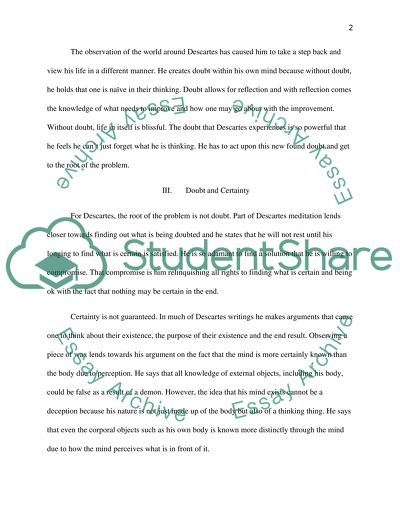Cite this document
(“Descartes - A Piece of Wax Essay Example | Topics and Well Written Essays - 1500 words”, n.d.)
Descartes - A Piece of Wax Essay Example | Topics and Well Written Essays - 1500 words. Retrieved from https://studentshare.org/philosophy/1442206-descartes-a-piece-of-wax
Descartes - A Piece of Wax Essay Example | Topics and Well Written Essays - 1500 words. Retrieved from https://studentshare.org/philosophy/1442206-descartes-a-piece-of-wax
(Descartes - A Piece of Wax Essay Example | Topics and Well Written Essays - 1500 Words)
Descartes - A Piece of Wax Essay Example | Topics and Well Written Essays - 1500 Words. https://studentshare.org/philosophy/1442206-descartes-a-piece-of-wax.
Descartes - A Piece of Wax Essay Example | Topics and Well Written Essays - 1500 Words. https://studentshare.org/philosophy/1442206-descartes-a-piece-of-wax.
“Descartes - A Piece of Wax Essay Example | Topics and Well Written Essays - 1500 Words”, n.d. https://studentshare.org/philosophy/1442206-descartes-a-piece-of-wax.


